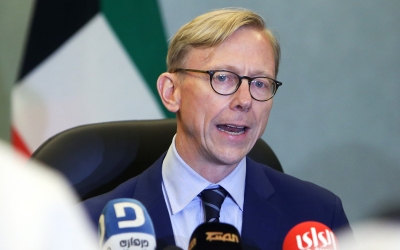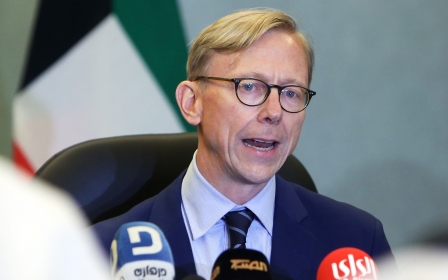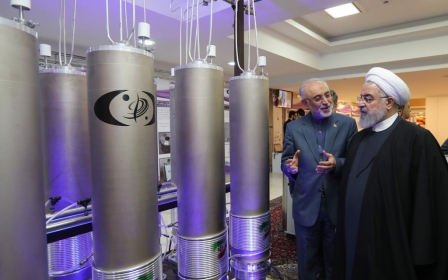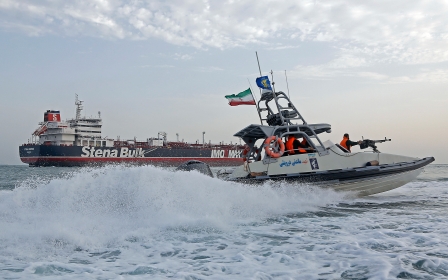US offered ship captain money in bid to seize Iranian tanker in Gulf: Report
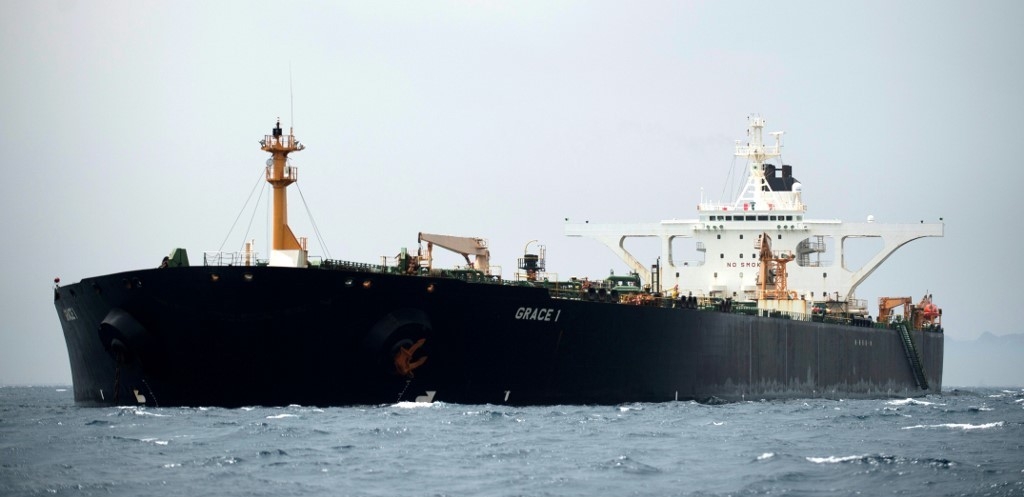
A senior US State Department official offered money to the captain of an Iranian tanker that was seized off the coast of Gibraltar in early July as part of the Trump administration's "maximum pressure" campaign, the Financial Times newspaper reported.
Brian Hook, the US special representative for Iran, offered "several million dollars" to the captain of the Iranian Grace 1 vessel, which was detained off the coast of Gibraltar on 4 July amid suspicion it was going to deliver oil to Syria.
Hook sent an email to captain Akhilesh Kumar four days before Washington imposed sanctions on the supertanker in August, the Financial Times reported on Wednesday.
The money aimed to entice the captain to pilot the ship to a port where the US could impound it, the newspaper said.
"This is Brian Hook . . . I work for secretary of state Mike Pompeo and serve as the US Representative for Iran," Hook wrote in an email on 26 August, the newspaper said, citing several emails it has seen.
New MEE newsletter: Jerusalem Dispatch
Sign up to get the latest insights and analysis on Israel-Palestine, alongside Turkey Unpacked and other MEE newsletters
'With this money you can have any life you wish and be well-off in old age... If you choose not to take this easy path, life will be much harder for you'
- Brian Hook in email to captain of Iranian vessel Adrian Darya-1
"I am writing with good news," he wrote.
Hook has reached out to about a dozen ship captains via email or text in recent months "in an effort to scare mariners into understanding that helping Iran evade sanctions comes at a heavy price", the Financial Times said.
"With this money you can have any life you wish and be well-off in old age," Hook wrote in a second email to Kumar, according to the newspaper.
"If you choose not to take this easy path, life will be much harder for you."
The seizure of the Iranian vessel, which has since been renamed Adrian Darya-1, escalated an ongoing diplomatic dispute between Iran and the US.
US President Donald Trump's administration has accused Iran of threatening vessels in Gulf waters and has launched an international coalition to ensure safe passage through the area.
Iran has refuted US claims that an international mission in the Gulf is necessary, saying that regional countries can handle security there.
Iranian leaders previously called the seizure of the ship an act of "piracy" and vowed not to let it go without retaliation.
Two weeks after the Iranian vessel was taken, Iran impounded British tanker Stena Impero in the Strait of Hormuz for breaking "international maritime rules".
Despite US attempts to stop the Adrian Darya-1's release from Gibraltar, including issuing a warrant in mid-August, the authorities in Gibraltar let the vessel leave port on 18 August.
US offers reward
On Wednesday, the US also announced it would offer a reward for any information that helps to disrupt Iran's oil shipping network, which it referred to as an "oil-for-terror network".
Speaking to reporters, Hook said that includes any information that could disrupt vessels like the Adrian Darya-1.
"This vessel was released by Gibraltar based on guarantees provided by the Iranian Government that it would not deliver its oil to Syria, which is exactly where it appears to be headed now," Hook said.
He then touted the US government's decision last week to sanction the ship's captain "for providing material support to a terrorist organisation".
"The criminal liability and immigration consequences of crewing Iranian tankers are real and not worth the risk," Hook said.
Iran has remained defiant in the face of US actions, calling on European countries to help it withstand the pressure of renewed American sanctions on several of its key industries.
Iranian leaders have also said they intend to slowly withdraw from their commitments under the landmark 2015 nuclear deal, which saw Iran curb its nuclear programme in exchange for a lifting of international sanctions.
Trump withdrew from the agreement in May 2018 and his administration has since reimposed a series of crippling sanctions against the country.
Iranian President Hassan Rouhani has insisted that Iran won't enter into negotiations with the US until those sanctions are lifted.
Middle East Eye delivers independent and unrivalled coverage and analysis of the Middle East, North Africa and beyond. To learn more about republishing this content and the associated fees, please fill out this form. More about MEE can be found here.


